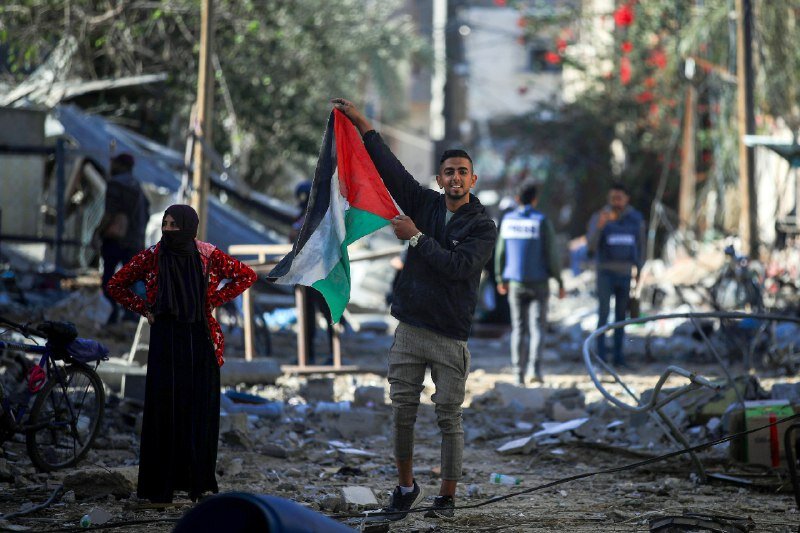Truce Extension?
Chances are high for extending the truce on the last day of Gaza pause

TEHRAN – With the temporary truce in the Israeli-Gaza war nearing its end, efforts are underway to turn it into a long-term ceasefire.
The recent four-day truce between the Israeli regime and Gaza held despite minor non-compliance on the part of Israel, which has previously said that it would continue its aggression against the Gaza Strip, the biggest open-air prison in the world, after the truce comes to an end.
The dramatic truce came into effect on Friday, when the Israel regime finally acquiesced to calls from the international community and internal pressures to put an end to its carnage in Gaza, at least temporarily to allow for the release of Israelis held captives in the Palestinian enclave.
Earlier, Israeli political and military officials had said that they wouldn’t accept any armistice before the complete release of Israel’s captives, something that was roundly rejected by the Palestinian resistance groups in Gaza, which had called for a captive swap deal.
Mounting pressures on Israel, however, changed the calculus in Tel Aviv, forcing the embattled government of Benjamin Netanyahu to wryly accept the temporary truce, which is likely to be extended for another period.
On Sunday, the Wall Street Journal reported that negotiators hope to extend the truce in Gaza for 4 days with the release of an additional 40 to 50 captives.
Simultaneously, Qatar, which has played a leading role in securing the truce, said it was working to extend it. “There is work and talks towards trying to extend the truce on the political track,” a senior Qatari official told Al-Jazeera.
Israel has said that it would continue its aggression against Gaza and even extend it to the south of the coastal sliver. But that seems to be politically far-fetched, with the Biden administration increasingly expressing frustrations over Israel’s deliberate targeting of civilians.
The Washington Post reported on Sunday that the Israel-Gaza war has sparked internal divisions within the White House. It said the war has “roiled the Biden team like no other issue during his presidency.”
“Earlier this month, a group of about 20 distressed White House staffers requested a meeting with President Biden’s top advisers, as Israel’s war in Gaza entered its sixth week,” the Post wrote, adding, “The diverse group of staffers had three main issues they wanted to discuss with White House chief of staff Jeff Zients, senior adviser Anita Dunn and deputy national security adviser Jon Finer: They wanted to know the administration’s strategy for curbing the number of civilian deaths, the message it plans to send on the conflict and its postwar vision for the region.”
Referring to Biden’s rock-ribbed backing of the Israeli regime, the American paper continued, “the Biden administration has become identified with a military campaign that has killed more than 14,000 Palestinians, displaced hundreds of thousands of others, created a humanitarian disaster and damaged America’s moral authority in much of the world.”
Aside from the opposing voices in the U.S., Israel also faces serious challenges in pressing ahead with its genocidal campaign. Hamas and other resistance groups in Gaza remain up and running after 47 days of fighting. Iranian Foreign Minister Hossein Amir Abdollahian has said in a recent interview with Al Jazeera that the Gaza-based resistance groups have only used 10-12 percent of their capabilities, meaning that Israel will face credible resistance if it chooses to advance from north to south of Gaza. Above all, the continuation of the Israeli aggression could put their Israeli captives in Gaza in grave danger as Hama is unlikely to release them under duress.
As things stand, Israel and Gaza could agree to extend the current truce, at least for a limited number of days.
Of course, there is speculation among independent observers that Israel could decide to resume its aggression with the aim of delivering a bigger blow to the Strip and killing the remaining captives, who are now mostly military and security personnel after the release of civilian captives.
